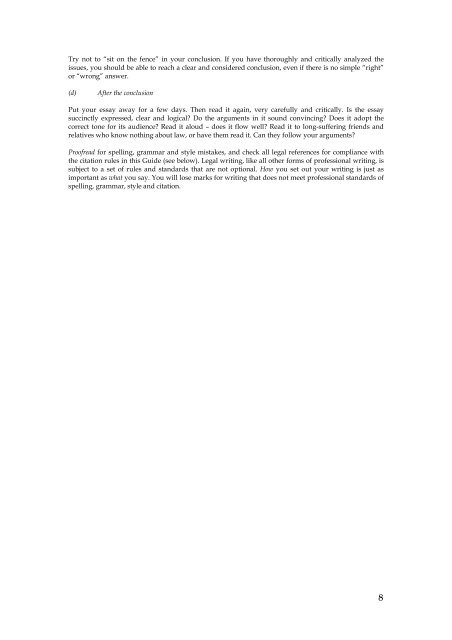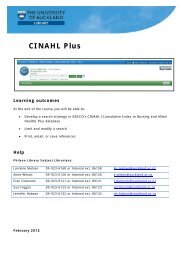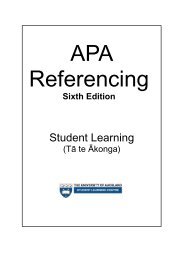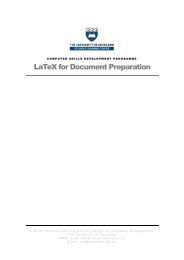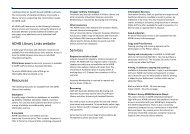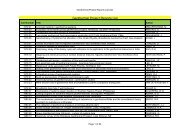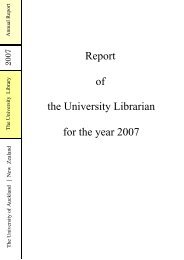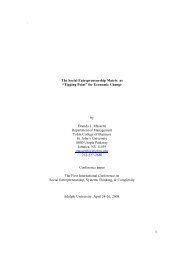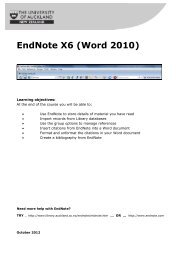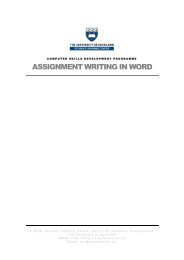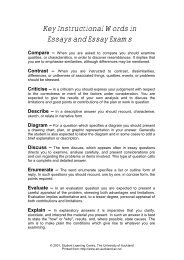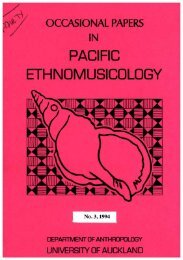Legal Writing Guide - The University of Auckland Library
Legal Writing Guide - The University of Auckland Library
Legal Writing Guide - The University of Auckland Library
You also want an ePaper? Increase the reach of your titles
YUMPU automatically turns print PDFs into web optimized ePapers that Google loves.
Try not to “sit on the fence” in your conclusion. If you have thoroughly and critically analyzed theissues, you should be able to reach a clear and considered conclusion, even if there is no simple “right”or “wrong” answer.(d)After the conclusionPut your essay away for a few days. <strong>The</strong>n read it again, very carefully and critically. Is the essaysuccinctly expressed, clear and logical? Do the arguments in it sound convincing? Does it adopt thecorrect tone for its audience? Read it aloud – does it flow well? Read it to long-suffering friends andrelatives who know nothing about law, or have them read it. Can they follow your arguments?Pro<strong>of</strong>read for spelling, grammar and style mistakes, and check all legal references for compliance withthe citation rules in this <strong>Guide</strong> (see below). <strong>Legal</strong> writing, like all other forms <strong>of</strong> pr<strong>of</strong>essional writing, issubject to a set <strong>of</strong> rules and standards that are not optional. How you set out your writing is just asimportant as what you say. You will lose marks for writing that does not meet pr<strong>of</strong>essional standards <strong>of</strong>spelling, grammar, style and citation.8


